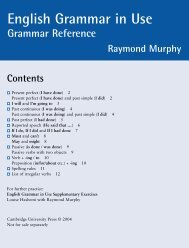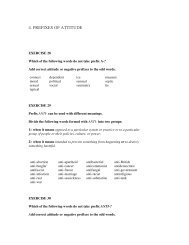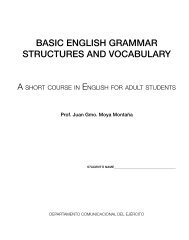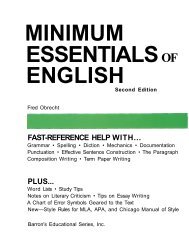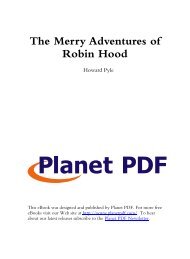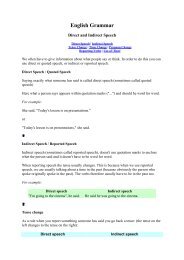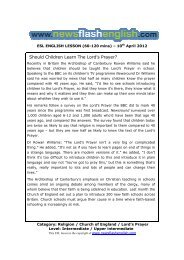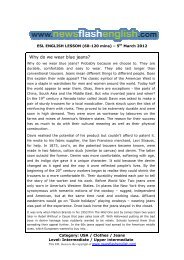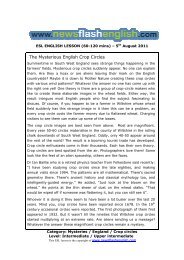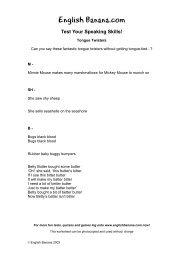A Grammar of the English Tongue - ESL Teachers Board
A Grammar of the English Tongue - ESL Teachers Board
A Grammar of the English Tongue - ESL Teachers Board
Create successful ePaper yourself
Turn your PDF publications into a flip-book with our unique Google optimized e-Paper software.
A <strong>Grammar</strong> <strong>of</strong> <strong>the</strong> <strong>English</strong> <strong>Tongue</strong> 7E is long, as in sc[=e]ne; or short, as in c[)e]llar, s[)e]parate, c[)e]lebrate,m[)e]n, th[)e]n.It is always short before a double consonant, or two consonants, as inv[)e]x, p[)e]rplexity, rel[)e]nt, m[)e]dlar, r[)e]ptile, s[)e]rpent, c[)e]llar,c[)e]ssation, bl[)e]ssing, f[)e]ll, f[)e]lling, d[)e]bt.E is always mute at <strong>the</strong> end <strong>of</strong> a word, except in monosyllables that have noo<strong>the</strong>r vowel, as <strong>the</strong>; or proper names, as Penelope, Phebe, Derbe; beingused to modify <strong>the</strong> foregoing consonants, as since, once, hedge, oblige; orto leng<strong>the</strong>n <strong>the</strong> preceding vowel, as b[)a]n, b[=a]ne; c[)a]n, c[=a]ne; p[)i]n,p[=i]ne; t[)u]n, t[=u]ne; r[)u]b, r[=u]be; p[)o]p, p[=o]pe; f[)i]r, f[=i]re;c[)u]r, c[=u]re; t[)u]b, t[=u]be.Almost all words which now terminate in consonants ended anciently in e,as year, yeare; wildness, wildnesse; which e probably had <strong>the</strong> force <strong>of</strong> <strong>the</strong>French e feminine, and constituted a syllable with its associate consonant;for in old editions words are sometimes divided thus, clea-re, fel-le,knowled-ge. This e was perhaps for a time vocal or silent in poetry asconvenience required; but it has been long wholly mute. Camden in hisRemains calls it <strong>the</strong> silent e.It does not always leng<strong>the</strong>n <strong>the</strong> foregoing vowel, as gl[)o]ve, l[)i]ve,g[)i]ve.It has sometimes in <strong>the</strong> end <strong>of</strong> words a sound obscure, and scarcelyperceptible, as open, shapen, shotten, thistle, participle, metre, lucre.This faintness <strong>of</strong> sound is found when e separates a mute from a liquid, asin rotten, or follows a mute and liquid, as in cattle.E forms a diphthong with a, as near; with i, as deign, receive; and with u orw, as new, stew.Ea sounds like e long, as mean; or like ee, as dear, clear, near.




